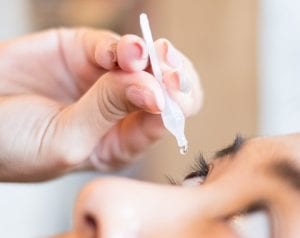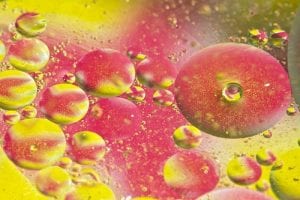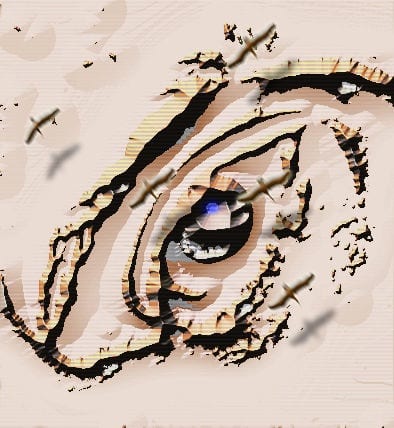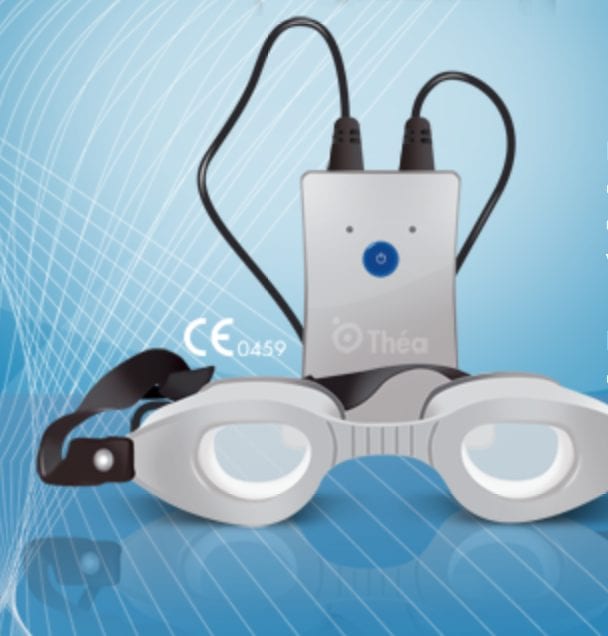 Do you get dry itchy eyes or sore eyes? Do your eyes ever get red? Do you feel like you have gritty eyes or your eyes feel irritated as though there something in them? Does your vision feel blurry at times? If yes, it is likely that you have dry eye and need treatment.
Do you get dry itchy eyes or sore eyes? Do your eyes ever get red? Do you feel like you have gritty eyes or your eyes feel irritated as though there something in them? Does your vision feel blurry at times? If yes, it is likely that you have dry eye and need treatment.
Dry eye is a chronic condition that affect about one third of adults and approximately half of those aged over 50 years of age. At Visual Q Eyecare, we have been treating dry eyes for well over 25 years. Our dry eye assessment will determine the cause and extent of your dry eye problem and tailor a dry eye treatment plan.
What is dry eye?
Tears lubricate the eyes to stop the surface from drying out. What’s in a tear? Tears are comprised of a mixture of water to moisturise, oils for lubrication, mucus for even spreading, as well as antibodies and special proteins to protect the eyes from infection. Every time you blink a film of tears is released over the eye surface to maintain eye comfort and health. This tear film needs to remain intact between each blink of the eye.
Dry eye syndrome is characterised by insufficient or poor-quality tears. It occurs when a person does not have enough healthy tears on the eye surface at all times. This can occur if they don’t produce enough tears to keep the eye surface moist or if the tears are unable to remain on the eyes for sufficiently long amounts of time. Eye dryness can actually damage the surface of the eyeball if left untreated over prolonged periods of time.
Causes of dry eye

A person can develop or suffer from dry eyes at any age although it is more common as we get older, because our eye glands produce lesser amounts of tears as we age. Meibomian gland dysfunction (MGD) is when the glands don’t function properly, due to blockage or oil deficiency is a leading cause of dry eye. Sometimes dry eye syndrome is triggered by medications prescribed for general health conditions, such as with post-menopausal women and arthritis.
Some other factors that can cause or contribute to dry eye include:
- Dry air and wind conditions, such as in air-conditioned offices
- Infrequent or incomplete blinking
- Prolonged periods of time in front of a computer screen
- Irritants, such as cigarette smoke, dust or chemical exposure
- Medication, such as oral contraceptives, antidepressants, antihistamines, diuretics and beta-blockers
- Trauma to the eye
- Eye gland conditions
- Eye surgery
Symptoms of dry eye
People with dry eyes will typically find it more difficult to wear contact lenses. Sufferers of dry eyes can experience difficulty with using a computer screen, watching television, driving, as well as reading.
Other common signs and symptoms of dry eye, may include:
- Stinging, burning or scratchy sensation in your eyes
- A sensation of having something in your eyes
- Stringy mucus in or around your eyes
- Eye redness
- Watery eyes (the body’s response to the irritation of dry eyes)
- Blurred vision
- Tired eyes known as eye fatigue
- Painful eyes
Complications if untreated

In more severe cases, dry eye can be accompanied by the inflammation of the eye surface leading to sleep disturbances. If left untreated, corneal ulcers can develop. Although rare, untreated dry eye can even lead to loss of vision.
Healthy tear production is vital to the eye health. Untreated dry eye can lead to other complications such as:
- Ocular discomfort and pain
- Fluctuations to eyesight
- Damage to the front surface of the eye (the cornea) with permanent corneal scarring in severe cases.
Treatment for dry eye
Although there is no cure for dry eye, there are many ways to treat this condition and alleviate its symptoms. As dry eye cannot be cured, ongoing treatment is required to manage the condition.
Treatments may include measure that aim to:
- Relieve dry eye symptoms
- Increase tear production
- Maintain tear film volume
- Prevent excess loss of tears
- Prevent complications
Establishing good habits for eye health assists with managing dry eye conditions.
- Blink more often, especially with prolonged us of computer or other electronic devices.
- Humidify the room with bowls of water or use a humidifier
- Ensure good eyelid hygiene by cleansing daily.
- Use warm compress for eye on closed eyelids.
- Include omega-3 fatty acids in your diet as it can improve the quality of the oil film produced by the eye gland
- Use of eye drops for dry eye, often referred to as ‘artificial tear’ to lubricate the surface of the eye.
Diagnosis
Dry eye is commonly confused with other conditions, in particular allergies. It can be tricky to diagnose because symptoms vary, are subjective and can be described in many different ways (e.g. ‘feels gritty’ vs ‘feels like something in my eye’). Important to have your symptoms thoroughly assessed.
It is important to have the health of your eyes assessed. Dry eye symptom is diagnosed using a number of tests, including:
- Examination the surface of the eye and tear via slit lamp bio-microscopy
- Evaluation of the quality of the tear film the eye produces
- Assessment of strength of tear production.
At Visual Q Eyecare, our thorough eye health assessment will help diagnose any dry eye problems. We provide ways to reduce dry eye symptoms and find the dry eye treatment that works best for you. Early dry eye diagnosis and treatment may prevent worsening of the condition. Any prolonged eye discomfort can lead to chronic issues that can potentially cause permanent eye damage.
The health and comfort of your eye is our concern. Call us today for your dry eye assessment and treatment or use our online booking to conveniently book your next assessment.


